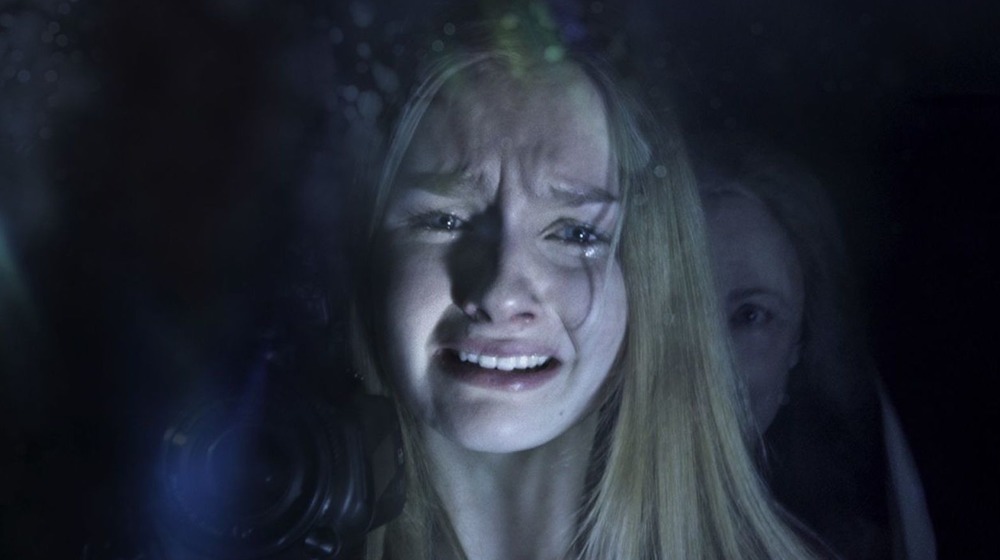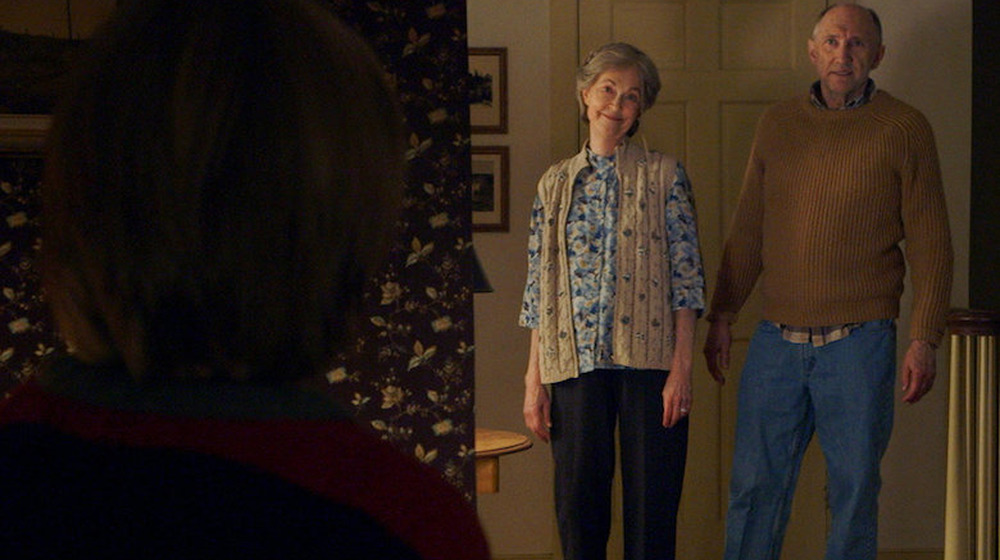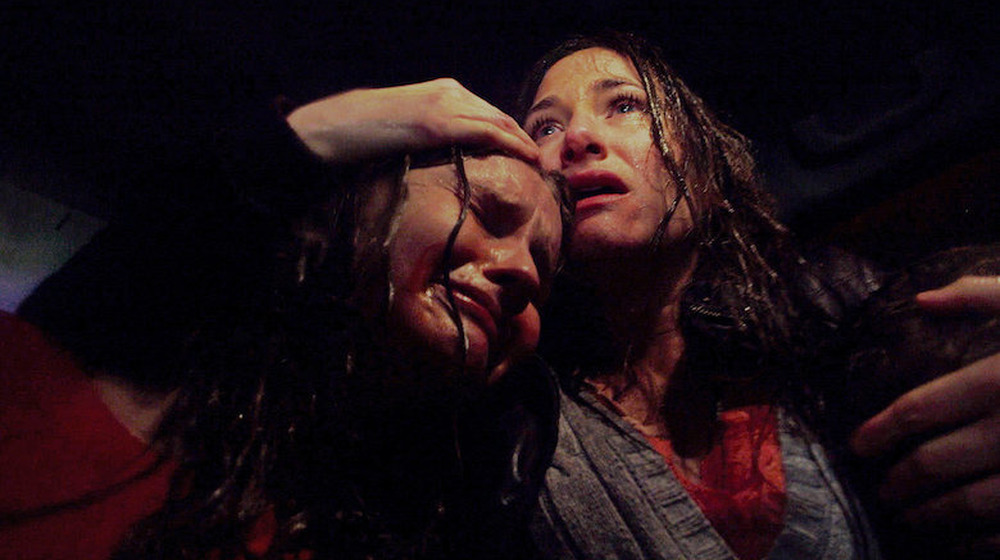The Ending Of The Visit Explained
Contains spoilers for The Visit
M. Night Shyamalan is notorious for using dramatic twists towards the endings of his films, some of which are pulled off perfectly and add an extra layer of depth to a sprawling story (hello, Split). Some of the director's other offerings simply keep the audience on their toes rather than having any extra subtext or hidden meaning. Shyamalan's 2015 found-footage horror-comedy The Visit, which he wrote and directed, definitely fits in the latter category, aiming for style over substance.
The Visit follows 15-year-old Becca Jamison (Olivia DeJonge) and her 13-year-old brother Tyler (Ed Oxenbould) when they spend the week with their mother's estranged parents, who live in another town. Loretta (played by WandaVision's Kathryn Hahn) never explained to her children why she separated herself away from her parents, but clearly hopes the weekend could help bring the family back together.
Although The Visit occasionally toys with themes of abandonment and fear of the unknown, it wasn't particularly well-received by critics on its initial release, as many struggled with its bizarre comedic tone in the found-footage style. So, after Tyler and his camera record a number of disturbing occurrences like Nana (Deanna Dunagan) projectile-vomiting in the middle of the night and discovering "Pop Pop"'s (Peter McRobbie) mountain of used diapers, it soon becomes clear that something isn't right with the grandparents.
Here's the ending of The Visit explained.
The Visit's twist plays on expectations
Because Shyamalan sets up the idea of the separation between Loretta and her parents very early on — and doesn't show their faces before Becca and Tyler meet them — the film automatically creates a false sense of security. Even more so since the found-footage style restricts the use of typical exposition methods like flashbacks or other scenes which would indicate that Nana and Pop Pop aren't who they say they are. Audiences have no reason to expect that they're actually two escapees from a local psychiatric facility.
The pieces all come together once Becca discovers her real grandparents' corpses in the basement, along with some uniforms from the psychiatric hospital. It confirms "Nana" and "Pop-Pop" escaped from the institution and murdered the Jamisons because they were a similar age, making it easy to hide their whereabouts from the authorities. And they would've gotten away with it too, if it weren't for those meddling kids.)
However, after a video call from Loretta reveals that the pair aren't her parents, the children are forced to keep up appearances — but the unhinged duo start to taunt the siblings. Tyler in particular is forced to face his fear of germs as "Pop Pop" wipes dirty diapers in his face. The germophobia is something Shyamalan threads through Tyler's character throughout The Visit, and the encounter with "Pop Pop" is a basic attempt of showing he's gone through some kind of trial-by-fire to get over his fears.
But the Jamison kids don't take things lying down: They fight back in vicious fashion — a subversion of yet another expectation that young teens might would wait for adults or law enforcement officers to arrive before doing away with their tormentors.
Its real message is about reconciliation
By the time Becca stabs "Nana" to death and Tyler has repeatedly slammed "Pop-Pop"'s head with the refrigerator door, their mother and the police do arrive to pick up the pieces. In a last-ditch attempt at adding an emotional undertone, Shyamalan reveals Loretta left home after a huge argument with her parents. She hit her mother, and her father hit her in return. But Loretta explains that reconciliation was always on the table if she had stopped being so stubborn and just reached out. One could take a domino-effect perspective and even say that Loretta's stubbornness about not reconnecting and her sustained distance from her parents put them in exactly the vulnerable position they needed to be for "Nana" and "Pop-Pop" to murder them.
Loretta's confession actually mirrors something "Pop-Pop" told Tyler (before his run-in with the refrigerator door): that he and "Nana" wanted to spend one week as a normal family before dying. They should've thought about that before murdering a pair of innocent grandparents, but here we are.
So, is The Visit trying to say that if we don't keep our families together, they'll be replaced by imposters and terrify our children? Well, probably not. The Visit tries to deliver a message about breaking away from old habits, working through your fears, and stop being so stubborn over arguments that don't have any consequences in the long-run. Whether it actually sticks the landing on all of those points is still up for debate.


